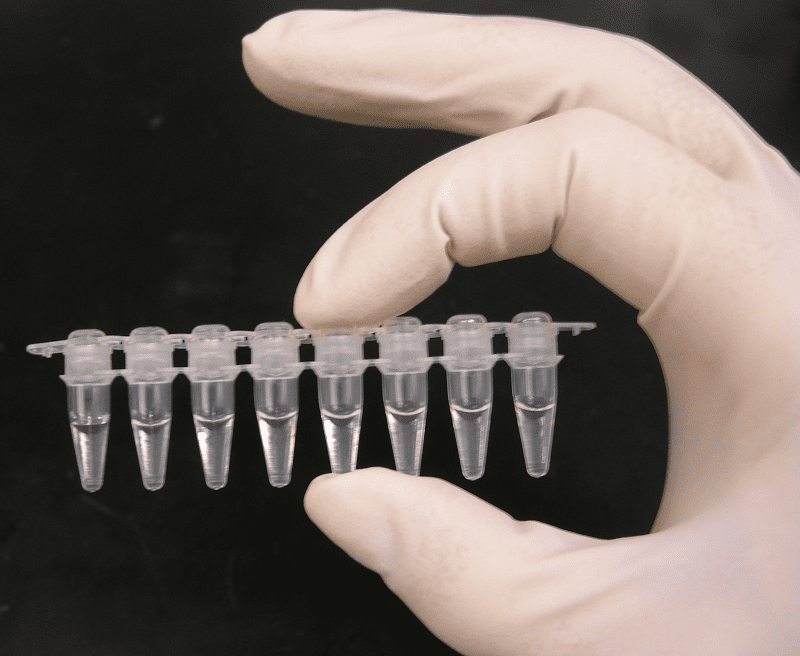PCR
The polymerase chain reaction (PCR) is a revolutionary laboratory method that makes it possible to amplify the smallest amounts of genetic material millions of times over. This technology has fundamentally changed medical diagnostics and is now an indispensable part of modern laboratories.
How does PCR work?
The PCR process is similar to the natural DNA duplication in our cells and takes place in three main steps. First, the DNA sample is heated to around 95┬░C, which causes the DNA double strand to separate into two single strands. The temperature is then lowered to around 60┬░C so that short pieces of DNA (primers) can attach to the individual strands. In the final step, a special enzyme, Taq polymerase, becomes active at 72┬░C and completes the DNA strands to form new copies. This cycle is repeated around 30 times, causing the amount of DNA to increase exponentially.
Medical applications
PCR has many applications in medicine. It is used particularly frequently in infection diagnostics, where it enables the detection of pathogens such as bacteria and viruses. A major advantage here is the high speed – while conventional detection methods often take days or weeks, PCR delivers reliable results after just a few hours.

PCR is also particularly valuable in cancer medicine, where it is used to investigate genetic risk factors and analyze tumor cells. In human genetics, the method helps in the diagnosis of over 600 different hereditary diseases.
Advantages of the method
PCR is characterized by several decisive advantages: It is extremely sensitive and can detect even the smallest amounts of genetic material. At the same time, it is very precise and provides reliable results. The method not only enables the qualitative detection of pathogens, but can also determine their quantity in the body in special variants.
PCR has established itself as an indispensable tool in modern medicine and makes a significant contribution to improving the diagnosis and treatment of a wide range of diseases.
Matching:
Seegene develops new Mpox PCR tests – MedLabPortal
Editorial office: X-Press Journalistenb├╝ro GbR
Gender note. The personal designations used in this text always refer equally to female, male and diverse persons. Double/triple references and gendered designations are avoided for the sake of better readability ected.

